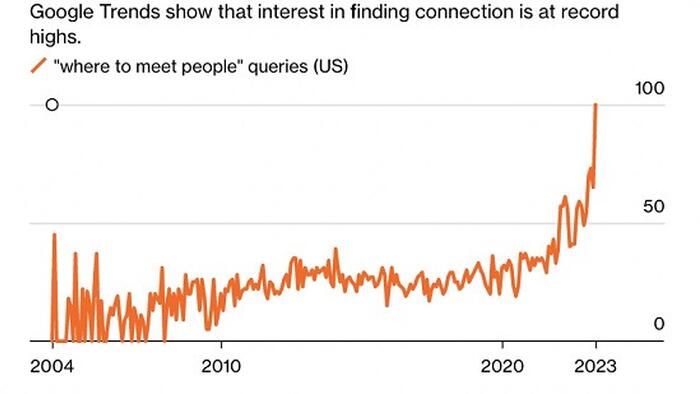In Charles Hugh Smith’s blog, “OfTwoMinds,” he explores the compelling notion that our definition of “Progress” requires a reevaluation, especially in the context of what he terms “Anti-Progress.” There exists a significant paradox between the reverence for technological advancement—such as dreams of lunar residences and limitless energy sources—and the harsh realities experienced in daily life. Contrary to the idyllic sci-fi narratives, the essence of genuine Progress, characterized by an improvement in quality of life, is increasingly absent. Instead, people encounter more hardships than ever, leading Smith to coin the term “Anti-Progress,” a phenomenon where advancements materialize yet simultaneously degrade the fundamental aspects of human well-being.
Smith illustrates this concept using the example of a raw carrot, a food rich in nutrients and other health benefits. In today’s economic landscape, the carrot’s low profitability limits its appeal, making it less favorable compared to highly processed snack alternatives that promise novelty, convenience, and engagement. The processed “veggie snack,” crafted from a minimal amount of carrot mixed with unhealthy additives, exemplifies how food marketing skews toward profit rather than health. This transformation highlights a distressing trend: the nutritional value of foods is often sacrificed for profit margins. The false branding of such snacks deceives consumers into believing they are making healthier choices while the products contribute to a host of health issues.
This shift towards “addictive consumerism” is not confined to food alone but pervades all aspects of the economy and society. Smith argues that products are deliberately designed not just for consumption but for addiction, creating a cycle of dependency that mirrors substance abuse. The alluring ability of such products to induce dopamine rushes has transformed them into cash cows for corporations. Compounding these issues, regulatory bodies often fail to protect consumers due to corporate lobbying and political influence, reinforcing a system where profit maximization becomes the only objective. This spiraling dedication toward profitability, even at the cost of health and truth, demonstrates a systemic failure to prioritize human welfare, leading to a shared responsibility in manufacturing consent through neglect.
The consequences manifest in various societal ailments, including rising rates of chronic diseases and mental health challenges. Ironically, the resources allocated to treating health issues stemming from unhealthy lifestyles contribute to the very cycle that fosters these problems. Pharmaceutical companies thrive alongside those profiting from the sale of unhealthy foods, suggesting a symbiotic relationship that prioritizes profits over public health. The narratives surrounding these industries perpetuate the concept of Progress despite evident declines in well-being, revealing a troubling dissonance between economic success and societal health.
Moreover, Smith critiques the pervasive mindset that positivity and support for technological advancements are essential, often silencing dissenting views. The societal expectation to maintain a positive outlook validates the status quo and stifles critical dialogue around uncomfortable truths about modern life. Smith highlights that acknowledging rising rates of illness, disability, and loneliness contradicts the prevailing narrative of Progress, thus implicating society’s failure to confront these dire realities honestly. In an environment where questioning the narrative becomes taboo, the pursuit of genuine improvement is overshadowed by a relentless cheerleading of superficial advancements that perpetuate Anti-Progress.
In light of these observations, Smith asserts the necessity for a redefined understanding of Progress, one that aligns with genuine societal benefits rather than mere financial gain. This perspective calls for a reset in the underlying mythology guiding societal aspirations and priorities. The ultimate aim is to foster a definition of Progress that integrates holistic well-being, rewarding relationships, and long-term health rather than fleeting consumer interactions. As the discourse around Progress evolves, so too must our commitment to dismantling the existing structures that lead us into Anti-Progress, allowing for a more meaningful and healthy engagement with our world and each other.

